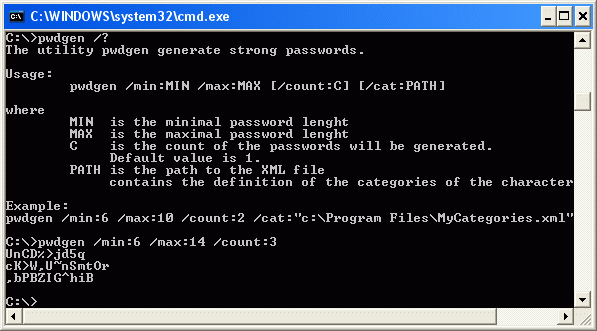

added German translation (thanks to Kevin Risnyj) added Spanish translation (thanks to Emmanuel Allende) The aim of the Internet Radio Linking Project (IRLP) is to provide a simple. Use this app password and your email address to sign in to your email app. Follow the instructions below the app password. added Simplified Chinese translation (thanks to 陆晨强) Click Generate app password or Generate and manage app passwords. added Option to remember password history (default is off) added confirmation dialog to Clear list action jQuery library updated to latest version added ability to select/deselect/invert selection of passwords in the list maximum password length increased to 128 added option to define custom characters for password generation customized generator settings are now remembered on close added option to randomize password length added Czech translation (extension is now fully localizable) Generated password you can copy directly to your clipboard, or generate more of them and copy them all at one time (or select only which of them you want). You can specify password length and used chars (lowercase, uppercase, numbers or custom). If in doubt, go directly to the official website of the bank or other service you’re trying to access using your own bookmark or by typing the legitimate address of the service yourself.Simple tool for generating strong and secure passwords With this extension you can easily generate strong and secure passwords. Scammers can copy the look of a company’s communications to fool you into clicking a phony link or attachment, so use caution with links that appear in unsolicited emails, social media, or SMS messages. Never share your password in response to an email or phone call - for example, to verify your identity - even if it appears to be from a trusted company or person.Īlways access websites using trusted links. Treat all unexpected requests for sensitive info with caution. For example, a crook may have hijacked a friend’s account and sent email to everyone in the friend’s address book. Here are some guidelines to follow to protect your passwords and other sensitive information:īe wary of anyone who is requesting sensitive info from you, even if it appears to be someone you know or a company you trust. (You may have heard these con games referred to as " social engineering".) If you receive an email message that appears to be from an online store (like eBay or Amazon) or a phone call from your “bank” that tries to convince you of the “legitimate” need for your password or other sensitive information, it could be a phishing scam. (Just be sure they make sense to you, so you'll remember them.) Don’t be tricked into revealing your passwordsĬriminals can try to break your password, but sometimes it’s easier to exploit human nature and trick you into revealing it. For example, if the question is "Where were you born?" you might answer "Green." Answers like these can’t be found by trolling Twitter or Facebook. Tip: If you’re asked to create answers to security questions, provide an unrelated answer. If the seed value is kept on changing, the number generated will new every time the program is compiled else it will return the same value. A seed is a value that is used by rand function to generate the random value. Don't write them on sticky notes or cards that you keep near the thing the password protects, even if you think they're well-hidden. The rand () function in C could be used in order to generate the random number and the generated number is totally deleting seed. It's ok to write your passwords down, as long as you keep them secure. See Save or forget passwords in Microsoft Edge. Microsoft Edge can remember your passwords for you and automatically fill them in for you when needed.
STRONG PASSWORD GENERATOR IN C UPDATE
The best password managers will automatically update stored passwords, keep them encrypted, and require multi-factor authentication for access. If you don’t want to memorize multiple passwords, consider using a password manager. That's called a " Credential stuffing attack" and it's extremely common. If crooks steal your account information from one site, they'll try to use those credentials on hundreds of other well-known websites, such as banking, social media, or online shopping, hoping you've reused the password elsewhere. Never send a password by email, instant message, or any other means of communication that is not reliably secure.

Once you’ve created a strong password, follow these guidelines to keep it secure:ĭon’t share a password with anyone. See Use Password Generator to create secure passwords. Tip: Don't want to think up your own strong passwords? Microsoft Edge can create and remember strong, unique, passwords for you.


 0 kommentar(er)
0 kommentar(er)
